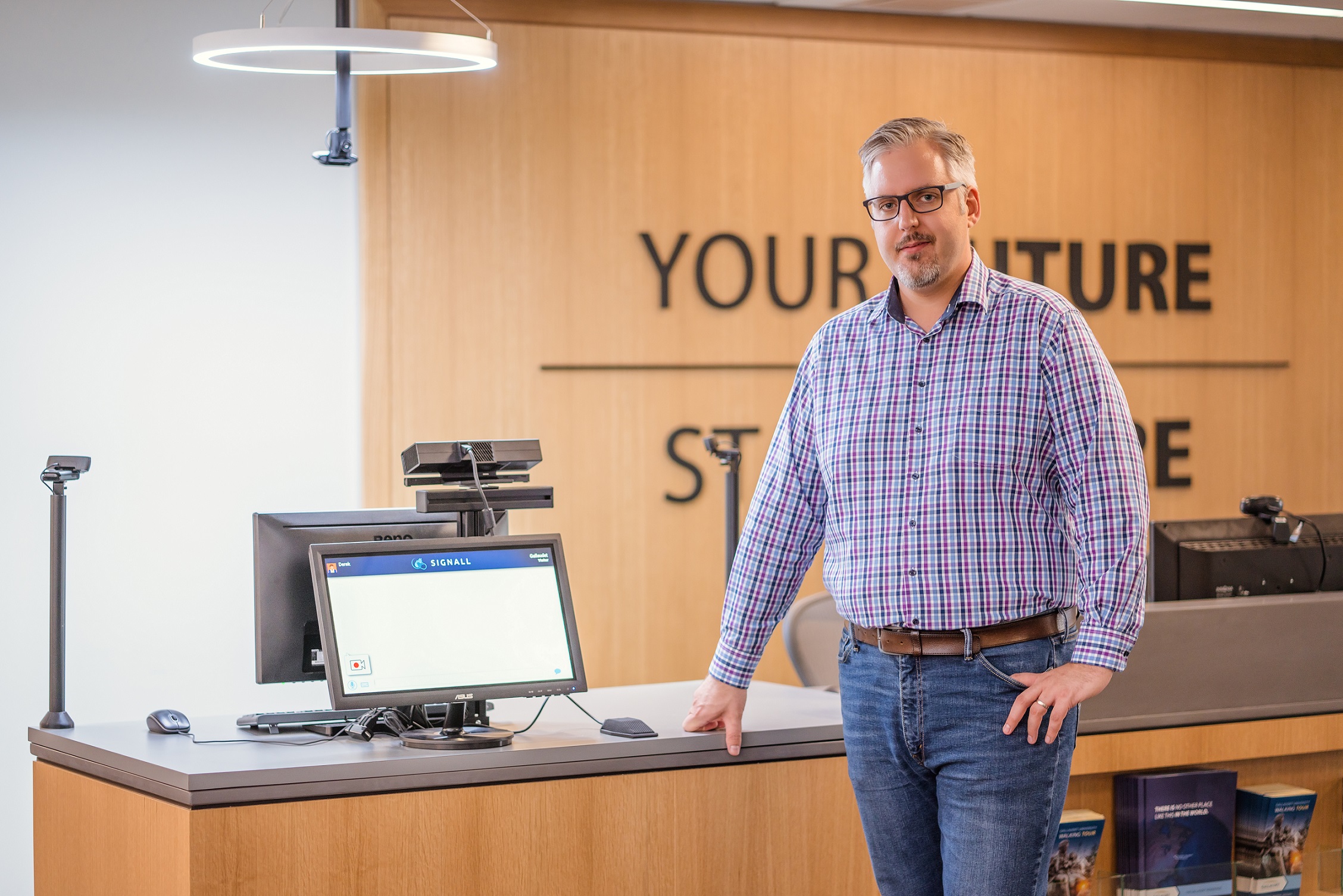Research and development startup SignAll is the first to use technology to facilitate real-time American Sign Language-to-English translation. The technology is now available to businesses and organizations that want to increase accessibility for their Deaf and hard-of-hearing employees and customers.
“More and more companies are striving to be inclusive, and SignAll’s technology allows Deaf and hearing people to communicate without barriers,” SignAll Co-Founder and CEO Zsolt Robotka said. “We invite those who are interested to be part of our pilot program.”
American Sign Language — the main language of many Deaf and hard of hearing people in North America — is a complex visual language that incorporates distinct signs, facial expressions, and body movements and positions, which made it a challenge to translate via computer. Budapest-based SignAll has pioneered the first platform that allows instant communication between ASL users and non-signing people.
The SignAll team, made up of Deaf and hearing researchers, mathematicians, developers and linguists from the United States and Hungary, spent seven years developing the SignAll Automatic Sign Language Interpreter System, which uses machine vision and natural language processing.
Four cameras pick up the signer’s visual cues; NLP software translates ASL to English text; and a speech-recognition feature processes spoken English into text. Text is displayed on a chat-like interface on two monitors.
SignAll collaborated with Gallaudet University in Washington, D.C., the only university in the world created specifically for the Deaf and hard of hearing, to fine-tune the program. SignAll debuted to the public June 2018 at Gallaudet’s Maguire Visitor Center, allowing Deaf and hard-of-hearing signers to seamlessly interact with hearing visitors who do not sign.
“Gallaudet provided expert information on American Sign Language and computer language processing and translation, and students assisted with development by acting as sign language models and testing software,” said Dr. Patrick Boudreault, associate professor in the Gallaudet Department of Translation and Interpretation. “The goal of the partnership with SignAll is to create full accessibility for Deaf and hard-of-hearing people, and SignAll’s use of native ASL signers is a value-added feature that other companies skip over in their rush to develop new translation technology.”
SignAll’s vision includes expanding to public and private organizations, such as government offices, schools and universities, and companies that want to improve communication with Deaf employees and customers.
“We are proud that SignAll has been developed jointly by Deaf and hearing people,” Robotka said. “We are concentrating on installing more systems in the United States. Our plans for the future include the development of a SignAll mobile application and making it available for systems like Siri or Alexa.”







